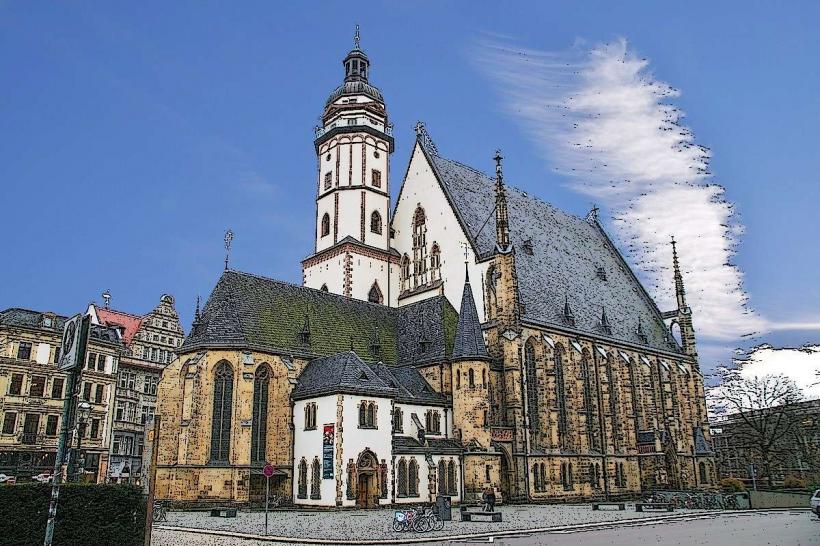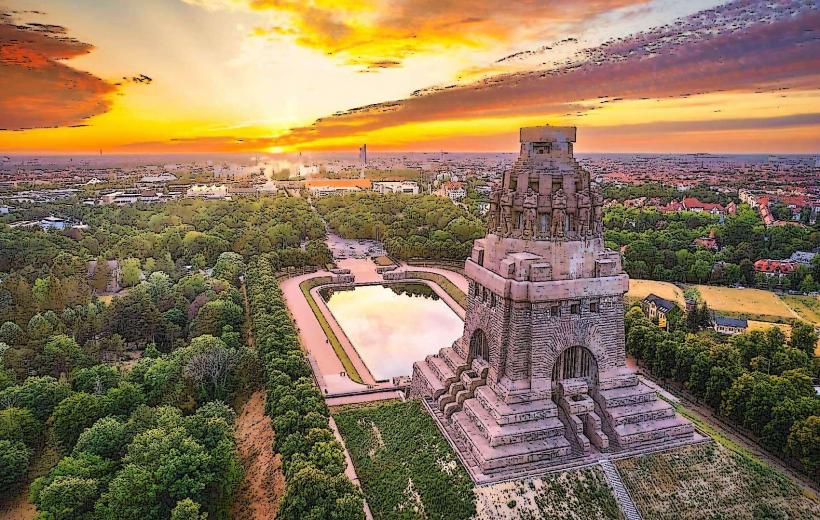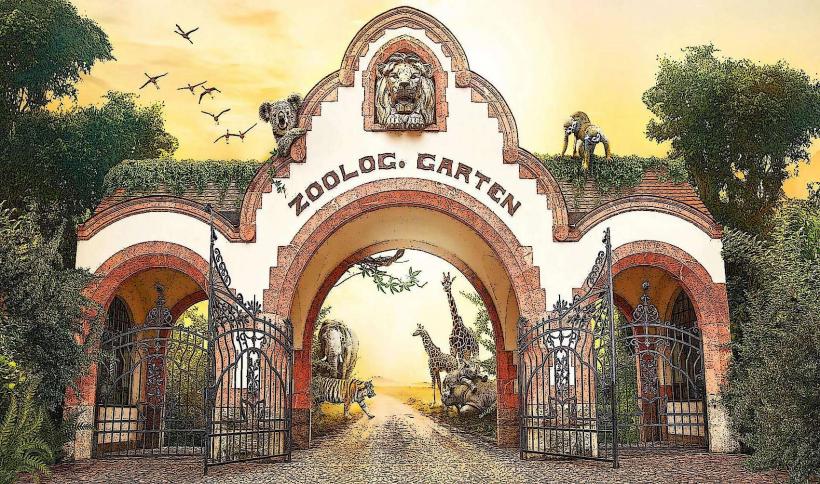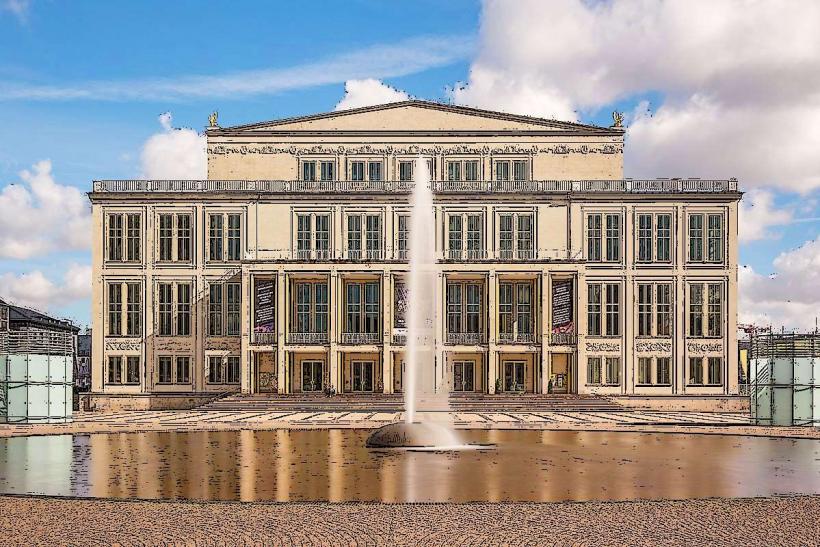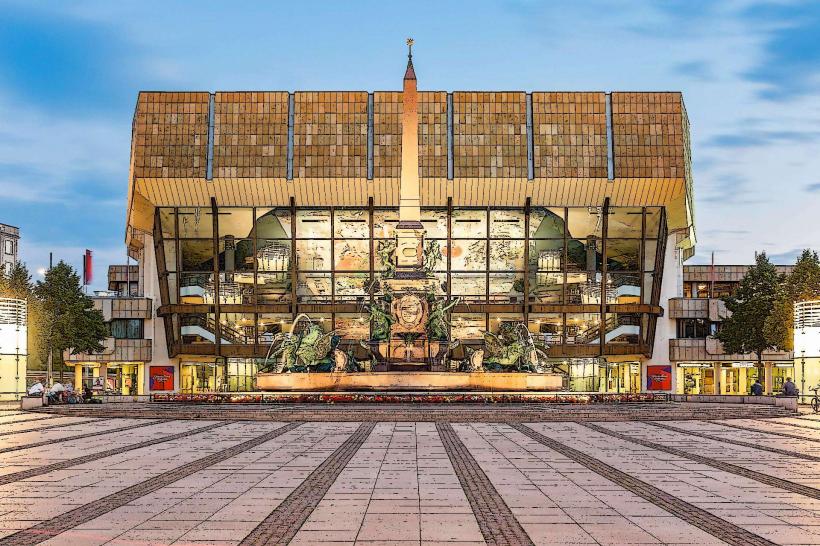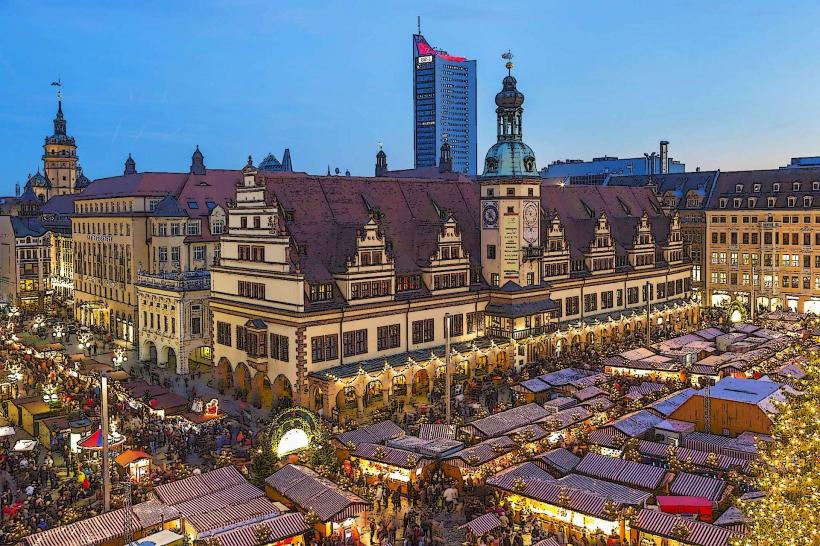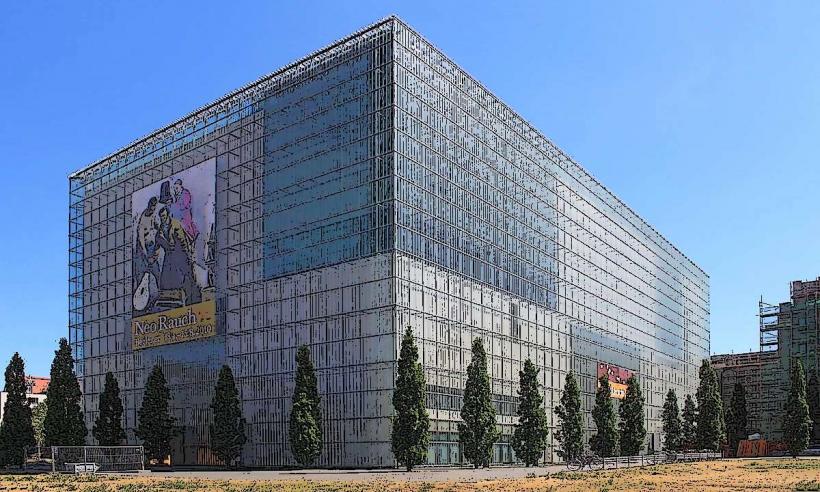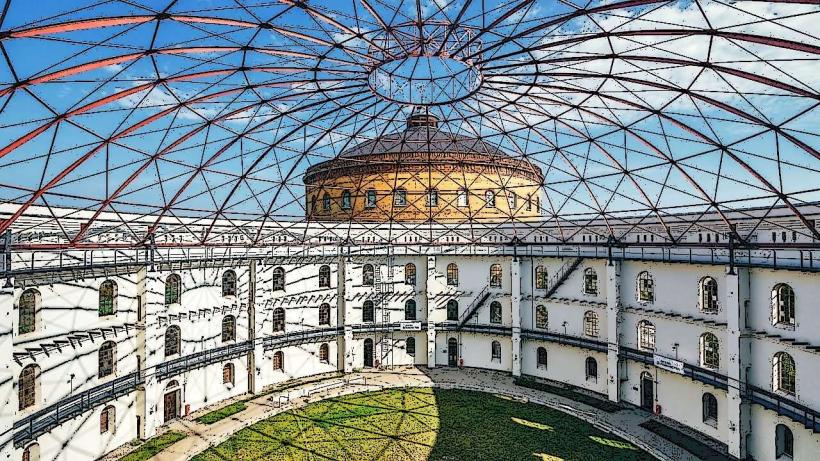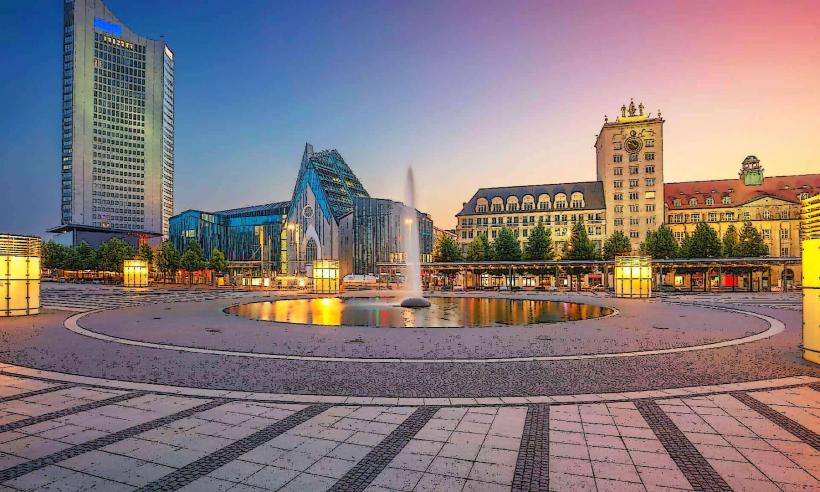Information
City: LeipzigCountry: Germany
Continent: Europe
Leipzig, Germany, Europe
Leipzig is the most populous city in the German state of Saxony, located at the confluence of the Pleiße, Elster, and Parthe rivers. It is a major center for trade, transport, and classical music, historically known as a city of printing and "the city of heroes" for its role in the 1989 Peaceful Revolution.
Visual Characteristics
The urban landscape features a blend of Renaissance and Baroque architecture alongside extensive 19th-century "Gründerzeit" residential blocks. The city center is compact, characterized by a unique system of covered courtyards and passages, such as the Mädlerpassage. The skyline is dominated by the 142-meter City-Hochhaus (the "Uniriese") and the massive stone Monument to the Battle of the Nations (Völkerschlachtdenkmal) to the southeast.
Location & Access Logistics
Leipzig is situated in the Leipzig Basin, approximately 160 kilometers southwest of Berlin. It is served by Leipzig/Halle Airport (LEJ), 18 kilometers northwest. Leipzig Hauptbahnhof is the world's largest railway station by floor area, acting as a primary node for ICE high-speed lines. The LVB transit network operates an extensive tram and bus system, complemented by a S-Bahn tunnel connecting the main station to the southern districts. Public parking is concentrated in underground lots at Augustusplatz and the Central Station.
Historical & Ecological Origin
Granted market rights in 1165, Leipzig became a leading European trade fair destination. In 1813, it was the site of the Battle of the Nations, the largest battle in Europe prior to WWI. Geologically, the city occupies a lowland plain. Extensive open-cast lignite mines south of the city have been transformed into the "Leipziger Neuseenland," a vast artificial lake district that has fundamentally altered the regional ecology and provided massive recreational zones.
Key Highlights & Activities
St. Thomas Church (Thomaskirche) is accessible for viewing the grave of Johann Sebastian Bach, who served as cantor there. The Museum of Fine Arts (MdbK) is housed in a modern glass cube containing significant Dutch and German works. The Panometer, a former gasometer, displays 360-degree panoramic installations by Yadegar Asisi. The Spinnerei, a former cotton mill, serves as a high-density gallery space for the "New Leipzig School" of contemporary art.
Infrastructure & Amenities
The city center is largely pedestrianized and equipped with public restrooms near the Old Town Hall and Augustusplatz. 5G cellular coverage is universal. The "nextbike" sharing system is the primary bike-hire provider. The city is noted for its high density of parks, including the Clara-Zetkin-Park. The Central Market (Markthalle) and the pedestrian zones of Grimmaische Straße provide the majority of retail and dining services.
Best Time to Visit
May to September offers the most stable climate, with temperatures between 18°C and 25°C. The Wave-Gotik-Treffen, the world's largest Gothic festival, occurs annually in late spring, resulting in unique cultural density. Photography of the City-Hochhaus and Augustusplatz is optimal at dusk. Winters are cold and dry, featuring a traditional Christmas market centered on the Marktplatz.
Facts & Legends
Leipzig is home to the oldest botanical garden in Germany and the second-oldest university (founded 1409). A local historical oddity: the Auerbachs Keller restaurant was the setting for a scene in Goethe's Faust, based on a 16th-century legend of a traveler riding a wine barrel out of the cellar. Legend holds that the city's name derives from the Slavic word Lipsk, meaning "the settlement where the linden trees grow."
Nearby Landmarks
Monument to the Battle of the Nations: 4.0km Southeast
St. Thomas Church: 0.2km West of center
Augustusplatz: 0.3km East of center
St. Nicholas Church: 0.1km North of center
Leipzig Zoo: 1.0km Northwest

